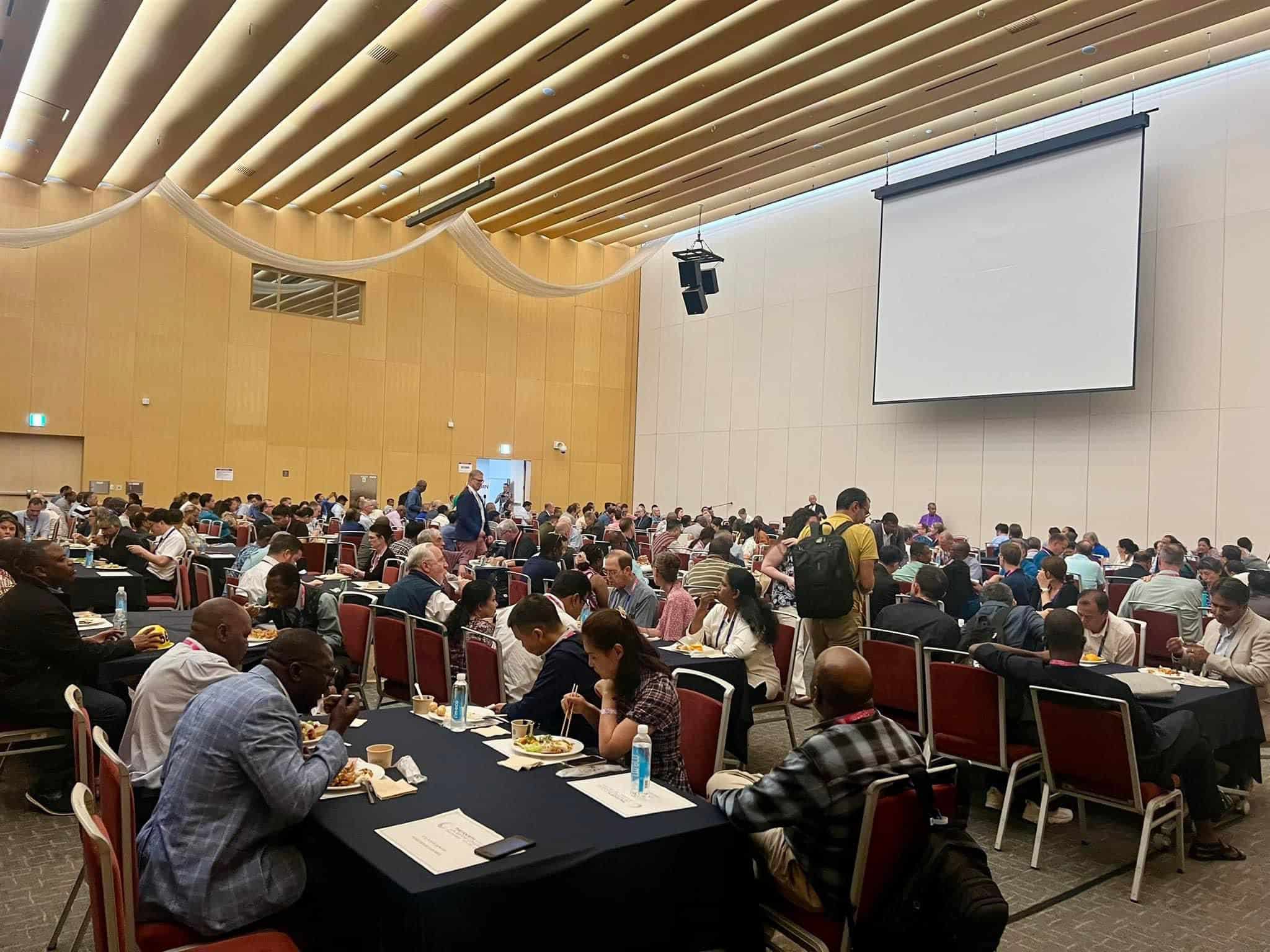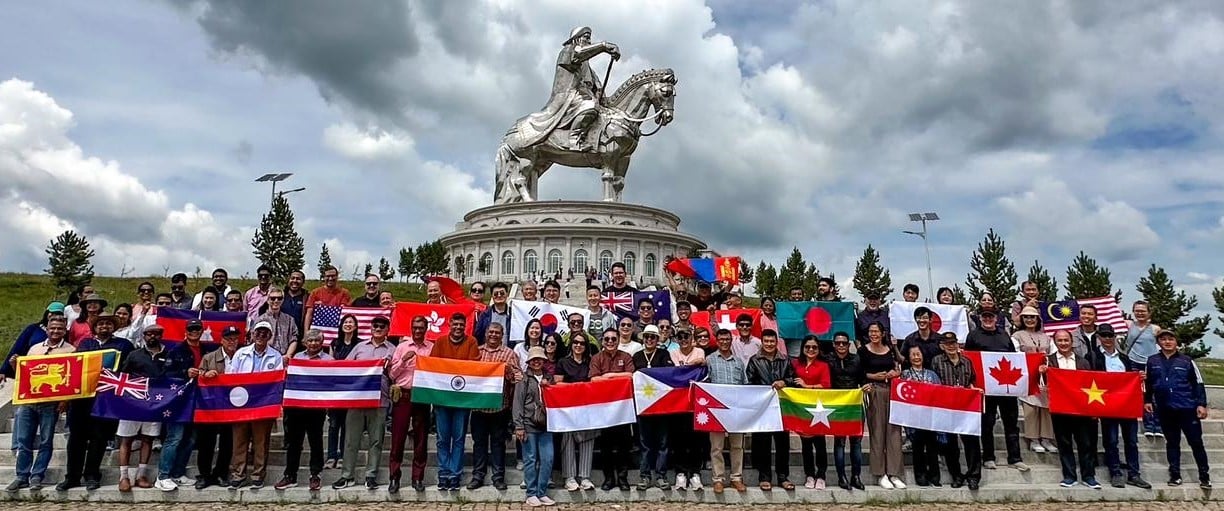The First African Forum on Religion and Government (AFREG)
Held in Abuja, Nigeria, from 25th to 28th JULY 2006
DECLARATION
From
The atmosphere surrounding AFREG 1 was very clear; the time has come for change in
* being the wealthiest continent in terms of natural resources and yet having the poorest people on planet earth,
* being known as incurably religious people and yet the serious lack of authentic spirituality, morality and integrity in all spheres of life (in church and society),
* the threat of religious intolerance and conflicts to peace and stability in
* the identity crisis which African values and Western values are often confused
* the need strengthen the proactivity of the church vis-à-vis issues of development, governance and justice.
In response to the above realities, the African leaders who were gathered expressed their deep sense of dissatisfaction for the current realities on the continent, and resolved to make the necessary contributions for positive change on the continent. We engaged in prayer, critical reflection, and discussed necessary action plans. Given our general agreement that the African challenge is primarily one of leadership, our deliberations were guided by the following purpose and objectives:
Purpose:
To build a movement of African leaders of integrity who are committed to transforming
Objectives:
* Develop a moral vision for
* Develop a framework for
* Develop a framework for freedom of religion in
We are gravely concerned about the gap between what we profess and our actions vis-à-vis what is happening on the continent and have a passion to do something about it. Inspired by the keynote address of Dr. Delanyo Adadevoh, and other presenters, the participants (including government Ministers, Parliamentarians, Judges, Church leaders, and other community leaders) took on the challenge of working towards a movement of African leaders of integrity who are committed to making a difference in Africa by being salt and light (Matthew 5:13-16).
Signs of hope and common concerns:
As participants reflected on the situation on the continent, we had cause to celebrate many signs of hope. The signs of hope include Christians responding to the calling to be in active politics with values for integrity, and the commitment to making a difference. The Church is also emerging as the key platform for peace and reconciliation in all spheres of life.
We are grateful to God for the key role played by H. E. President Olusegun Obasanjo in making the vision of AFREG 1 a reality. We are also grateful to God for the full participation of H. E. President Nkurunziza. His testimonies regarding steps that he is personally taking towards integrity, justice, peace and development in were inspiring signs of hope.
We also shared common concerns about the challenges that face the continent. We noted that
* mediocrity to excellence; “only the best is good enough for
* corruption to integrity.
* lack of confidence and initiative to confident, original and constructive creativity.
* limited supply mindset to abundance mindset.
* ethnocentrism to inter-ethnic communality.
* exclusivity on the basis of gender to inclusivity and partnership in development.
* favouritism to meritocracy.
* mindset of intervention and fatalism to the principle of sowing and reaping.
* the tendency to adjust to the status quo to change leadership.
* focus on raw material production to value added product economies.
* ignorance to knowledge of the true value of
* under-utilisation to maximization of African resources for development.
* charity dependence to fair business mindset.
* dependence mindset to responsible interdependence.
* self serving leadership to sacrificial service and leadership.
Values:
Participants agree that change and transformation is very necessary, very urgent, and possible to achieve in
* God-centredness
* Sacredness of human life
* Positive self-identity
* Personal and public integrity
* Ubuntu[1]
* Freedom and human rights
* Communality
* Sacrificial service
* Dignity of labour
* Responsible interdependence
* Justice for all
* Excellence
Commitments and actions:
These call for some direct commitments on the parts of leaders at various levels.
1. As participants in AFREG 1, we commit ourselves to
* disseminate in our various constituencies the vision, objectives and passion of AFREG including the declaration and action points.
* promote a spirit of oneness and cooperation between Africans on the continent and the Africans in the Diaspora.
* foster a climate of working with people of other faiths in order to have peaceful communities that will enable us address the many challenges facing the continent without compromising our faith
2. We call upon African churches to commitment themselves to
* more proactive and collective leadership in addressing holistically the issues of development, governance and justice.
* foster Christian unity on the continent and move beyond divisions that have plagued churches and church organizations.
* sponsor and insist on the development of theologies that speak from and to African expressions of Christianity.
* include issues of leadership, development and governance at all levels of church education, paying particular attention to mentoring and empowering young people
* encourage those who are called to engage in public politics and help in the building of their capacity to do so with the highest level of integrity as models to the entire society.
* utilize the gifts of all members without discrimination on the basis of gender or age.
* engage in activities that combat HIV/AIDS.
3. We call on leaders of African Governments to
* put the needs of the citizens of the nations first, and to seek the welfare of the nation rather than their own benefits.
* commit themselves to accountability and eradication of corruption.
* partner with churches for the development of our communities.
* commit more resources to the education and health of their peoples.
* ensure the independence of the judiciary.
* foster communities in which people of different faiths live together with mutual respect.
* Sponsor and/or partner with institutions engaged in combating HIV/AIDS
4. We call on African Christians in leadership and in Government to commitment themselves to
* excellence and integrity in how they carry out their responsibilities.
* act as role models to other politicians as well as other Christians aspiring to become politicians.
* be principled when they have to be pragmatic and to avoid the absolutist trap.
* invest wisely where it matters for the development of their communities and nations.
We acknowledge that God is at work in
[1] Ubuntu describes a wholesome person who has integrity, moral values, and compassion; and can relate constructively in community. It is an African concept particularly found among the Nguni (Zulu, Xhosa, Ndebele, Baswati) and other people of southern





Stay Connected